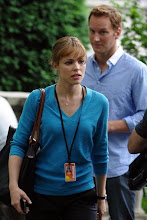I am in the group that is reading Diaries of Baghdad and watching a film. I have not quite finished the first half of the book yet, but I have already found it interesting. Granted, it is not the most exciting book, but it has an interesting and important viewpoint on the Americans’ wars in Iraq. The diary is written by a woman who is, if I am not mistaken, at least fifty years old. She is unmarried and has not mentioned ever having a husband. This in itself I found interesting, because usually we hear love stories portrayed by or about Middle Eastern women, since marriage is such an important aspect of the Middle East.
I have picked up bits and pieces of the diary here and there that have really popped out at me. One was how the author mentioned that war was unusual in Iraq before the war involving Kuwait. I found this statement eye-opening, since in my naivety, I had assumed that there was probably much war there just like in other laces in the Middle East. Her statement about Baghdad being punished for wrongdoing, and other nations not being punished, to be thought-provoking. She said something to the effect that every nation makes mistakes, so why is Iraq being punished so severely? This is a peculiar point of view. Another interesting thing was that she did not want to call herself an Arab at one point in the book. Finally, She mentioned that there seem to be three dominant images of the Middle East in the West: terrorists, Sheikhs, and women covered in black. My thoughts on this were that they should not be the dominant views, but the latter two are nevertheless somewhat peculiar to the Middle East, are they not?
Finally, one last thing I observed in the book was the constant referral to different pets that the author and others had. Being an animal lover and working for a vet clinic, I naturally found this fascinating. I had no idea that pets were important in Iraqi culture. Neat!
